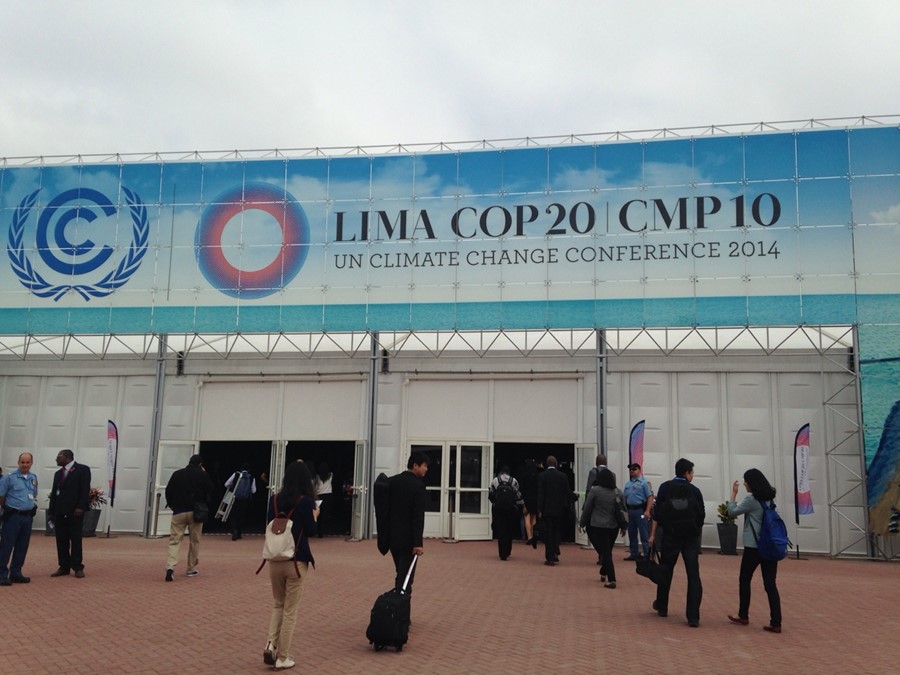
As the second week of the UN climate talks begins in Lima, progress on several fronts has been made towards a concrete draft proposal for a potential agreement to be adopted next year in Paris. The EU arrived this year with a new climate package for the period of 2020 till 2030 which let the way for the USA and China to follow suite with their own agreements. However, we have noticed little pro-activeness from the EU delegation during the negotiations and some inconsistencies which are not in line with science and an equitable vision of the world.
As faith-based organisations we believe that we as human beings have the duty to care for the creation given to us by God. The Archbishop Desmond Tutu declared recently in sermon that: “We are now being given an opportunity by God, but we have a narrow window of opportunity. We have to act fast.”
Despite having an official domestic target of 80% to 95% reduction of greenhouse gas emissions by 2050, the EU is only pushing for a 50% target at a global level by 2050, which is not in line with the recent scientific evidence from the Intergovernmental Panel on Climate Change (IPCC). The findings from the IPCC are clear: if we want to keep global warming below the disastrous threshold of 1.5C, with our current course we will have reached this target by 2020, in the most probable scenario . The EU’s double-discourse on greenhouse gas cuts does not reflect the huge danger posed to current and future generations all over the planet, especially the poor in developing countries.
Diplomacy takes time but the clock is ticking and negotiations in Lima must deliver concrete equitable elements for a new treaty. In particular we believe the EU must adopt a mechanism that will allow all countries to indicate their climate efforts and commitments every five years – rather than working to the ten-year timeframes that are currently proposed. While Poland appears to oppose this measure, France, Germany and the UK have the capacity to convince their Central and Eastern European partners about the importance of a shorter five-year timeline, which would provide the necessary incentives to the financial sectors to invest in renewable energies and energy efficiency. A five-year timeframe would also allow the regular updates of the IPCC and new scientific findings to be incorporated into ongoing action on climate change.
A typhoon is hitting the Philippines for the third year in a row during this annual UN climate talks, and follows several disastrous floods in Europe this year. These events show how a change of our climate system is increasing the frequency and intensity of extreme events, killing innocent people and causing a lot of costly material damages. To face these urgencies we need strong financial contributions to help the global south developing a low carbon economy, to adapt to climate change and to face losses and damages. The EU, including the Central and Eastern European countries must stop dragging their feet and face their responsibilities by defining a clear roadmap to deliver the $100 billion per year promised in 2009, by engaging public money and by taking an active part in developing innovative financial sources. Predictability is the key to building trust between parties at the COP. This must be done as soon as possible via the Green Climate Fund and we are desperately waiting for some countries, including Belgium, Austria, Greece, Portugal and Ireland, to pledge their fair share.
As Monsignor Salvador Piñeiro, President of the Peruvian Bishops Conference, made clear at a high level event last week: “The degradation of the environment is directly linked to poverty. There can be no environmental justice where there are unjust social structures.”
EU countries must champion efforts to tackle climate change. With France to host the UN climate talks next year, with Germany adopting new plans to meet its 2020 targets, and with the UK making clear to civil society it agrees with the need for urgent action, the EU must ensure the concerns of any individual member states are addressed and allayed to clear the way for progress to be made at the international level. Too many lives are at stake to allow blocking tactics to thwart the delivery of this most urgently needed ambitious and fair global agreement on climate change.
Return to our COP20 overview page
